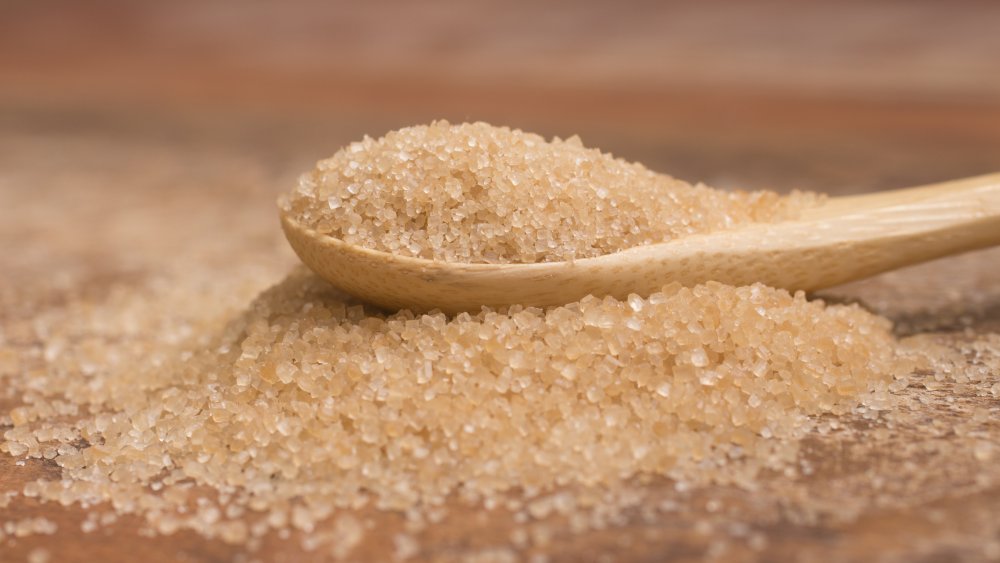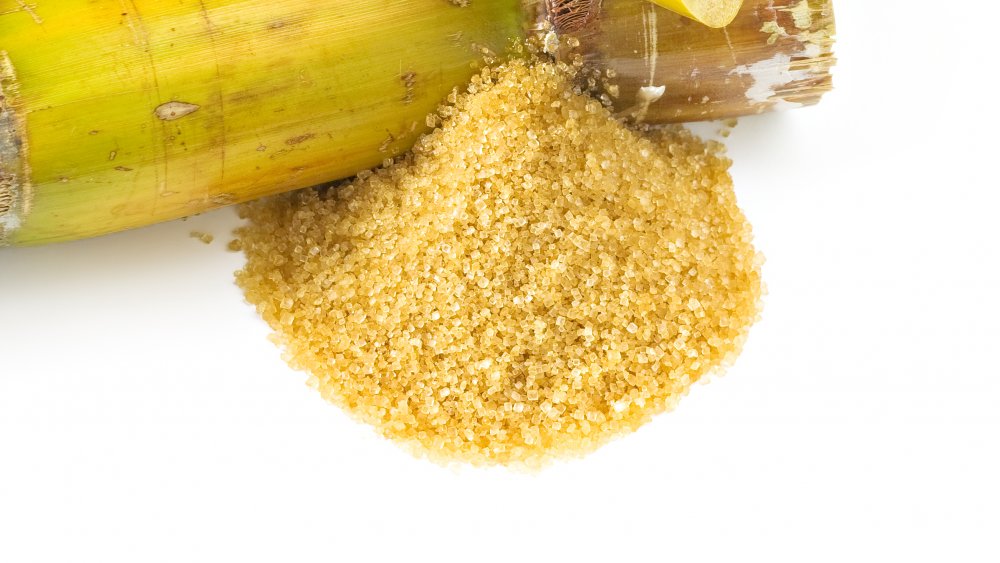Should You Be Using Demerara Sugar Instead Of White Sugar?
Most of us have encountered demerara sugar at some point whether or not we realized it. The little packets labeled raw sugar at the coffee station? The tiny crunchy sugar bits on top of your blueberry muffin? Likely all demerara (via The Sugar Association). In the breakroom it might seem like the healthier option to add to your drink than traditional sugar options, but is demerara really any better?
The brown-hued crystals come from South America originally, but most of the product is sourced from Mauritius in Africa these days. A touch of natural molasses is responsible for the sugar's subtle caramel color and flavor (via Healthline), and the stuff undergoes a lot less processing than regular sugar so it's able to retain a small amount of natural vitamins and minerals including iron, calcium, magnesium, and vitamins B3, B5, and B6. Demerara also contains a little less sucrose than white sugar (via Doctor NDTV).
Demerara sugar vs. white sugar
In contrast, regular sugar is highly processed and stripped of almost all of its nutrients (via Scielo). Although demerara sugar is in a more natural form than the white stuff we all are familiar with, it is still considered an added sugar. Added sugars are basically any sugar that's not being delivered in its natural form — think sugar inside a fruit — and as such is not recommended to be a mainstay in our diets.
Unfortunately for all of us who love artisan pastries, demerara and regular sugar have similar effects on blood sugar levels and calories. While we can tell the difference between the two sweeteners, our body thinks they are one in the same.
The silver lining in all this is that demerara seems to be a tiny bit better in the nutrition department than traditional sugar. Let's be honest, we're all going to eat sugar sometimes, even if we know it's not super great for us — why not shift to demerara when our coffee needs a little something to smooth it out, and feel good about the extra (albeit small) amounts of iron and calcium we're guzzling?

